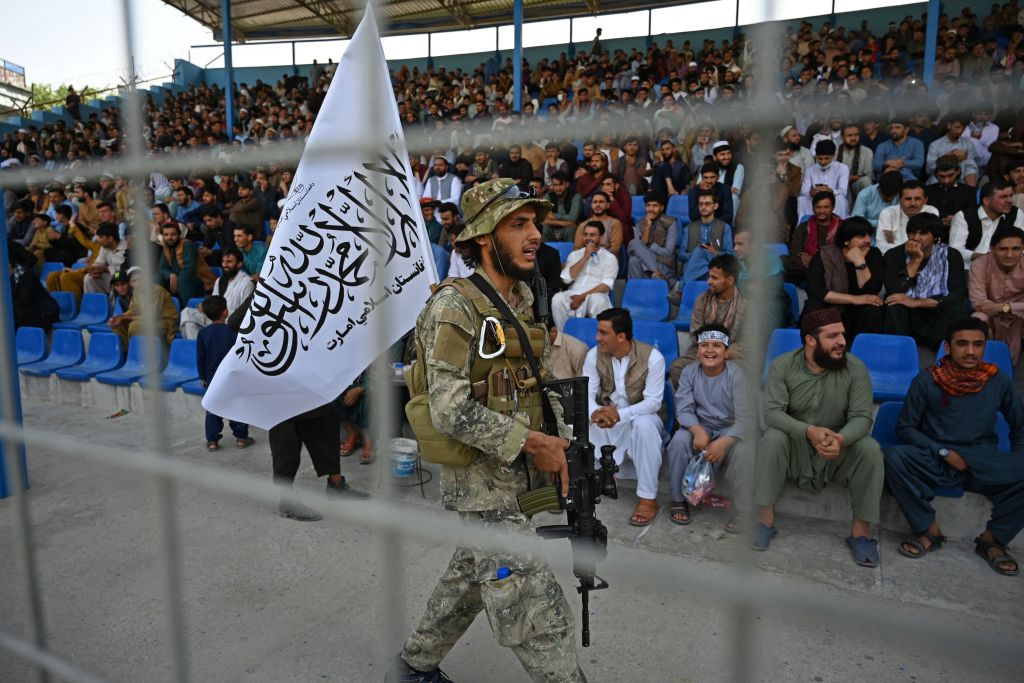Australia–Afghanistan test match just not cricket

Australia is due to play Afghanistan in the first cricket test between the two countries and the first test of the coming season at Bellerive Oval in Hobart, Tasmania, in mid-November. This test match must not happen.
In saying that, I really feel for the Afghan cricketers, some of whom have performed with flair and great ability in our domestic Twenty20 competition. Well-travelled sporting identities are hardly likely to support the Taliban. But this is one occasion where politics must take priority over sport.
If the test match proceeds, it will give the Taliban a major propaganda victory, undermine the human rights of Afghan women, and insult the tens of thousands of Australian Defence Force personnel who served in that country.
According to a Cricket Australia spokesperson, ‘There is goodwill between CA and the Afghanistan Cricket Board to make the match happen.’ This comment was reported on 31 August. Then, and still today, the Afghanistan women’s cricket team is hiding in Kabul, in fear for their lives.
A female cricketer told the BBC, ‘When the Taliban came here and took Kabul they threatened them, saying, “We may come and kill you if you try to play cricket again.”’
Among the several thousand people evacuated from Kabul airport by the ADF were close to a hundred female Afghan athletes and their dependants, including members of the national soccer team, Paralympians and an Afghan karate champion with three children, many of whom had faced beatings at Taliban checkpoints to get to the airport.
It is inconceivable that we could endanger the lives of Australian personnel to save Afghans from Taliban persecution in August, only to then host a Taliban-endorsed test cricket team in November.
Cricket was banned in Afghanistan when the Taliban were in power two decades ago. Since then, the sport has grown massively in popularity in the country, and it seems a more pragmatic Taliban plan to use cricket to bolster their rule domestically and present a more moderate image overseas.
Armed Taliban fighters took over the offices of the Afghanistan Cricket Board on 20 August, and a new acting chair was quickly appointed. The board’s chief executive claimed, ‘[The] Taliban loves cricket. They have supported us since the beginning. I don’t see any interference and expect support so that our cricket can move forward.’ Since then, the board has announced teams for the domestic T20 Shpageeza Cricket League and, on 2 September, sent an under-19 cricket squad on a tour to Bangladesh. International cricket diplomacy is a Taliban priority.
Whether women’s cricket will be allowed again in Afghanistan is less clear. The International Cricket Council requires all test-match-playing countries to have a national female team. At a minimum, the ICC and the Australian Cricket Board should make the Afghan male team’s participation in international cricket conditional on assurances of the safety and wellbeing of Afghanistan’s female cricketers.
The Taliban leadership is using cricket to put a veneer of international legitimacy on a brutal regime. Allowing the test to proceed in Hobart will undermine the authority of the Australian government to participate in an international discussion, now being led by the G7 under the chairmanship of Britain’s Boris Johnson, to determine whether to recognise the Taliban as Afghanistan’s legitimate rulers, and how to engage with that regime.
Australia needs to have a seat at the G7 table on the future of Afghanistan. Forty-one Australians were killed and hundreds wounded in this conflict. Around 30,000 Australians served in postings to Afghanistan over 20 years. That effort buys us the right to help shape international responses to the Taliban’s new rule and it must surely override the priority for a cricket match.
Corporal Richard Atkinson was born in Hobart in 1988 and was killed in action by an improvised explosive device on 2 February 2011. According to his family, he ‘was very close to each of his relatives and was looking forward to coming home at the end of his tour to spend time with them in Tasmania’.
Corporal Cameron Baird was born in Burnie in 1981. He was awarded a Medal for Gallantry for bravery while being ‘part of a Commando Company mission assigned for clearance and search of a Taliban stronghold in November 2007’. Baird was posthumously awarded the Victoria Cross for astonishing valour in attacking ‘an insurgent network deep within enemy-held territory’ when he lost his life on 22 June 2013.
Neither Baird nor Atkinson knows of the ‘goodwill’ existing between Cricket Australia and its Taliban-controlled Afghan counterparts, but the rest of us do. I wonder what seeing the Taliban flag flying at Bellerive Oval will do for the mental health of those who served in Afghanistan, or Australian Afghans who fled the Taliban’s violence.
Why not hold a match between an Australian XI and a Rest of the World XI at Bellerive in November instead? The match could be a fundraiser to support the many thousands of Afghans who have been turned into refugees and effectively have nothing, thanks to the fecklessness of the West and the brutality of the Taliban.
Afghanistan’s return to international cricket should be allowed only if the Taliban show themselves capable of respecting the human rights of all Afghans and particularly of women and girls. This should include allowing Afghans who fear for their lives to leave the country without harassment. At this stage we have no reason to believe, and indeed substantial contrary evidence, that the Taliban have moderated their brutal behaviour.
For Afghanistan, the right to play international test cricket anywhere should be contingent on the Taliban showing they can operate according to acceptable international norms of behaviour. Until that point, there should be no test match at Bellerive.